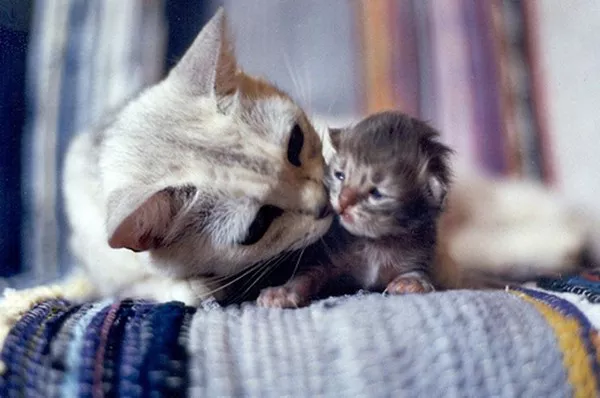When it comes to feeding kittens, many people wonder when it is appropriate to introduce solid food into their diet. One question that commonly arises is whether or not two-week-old kittens can eat wet food. Today, we will explore this topic and provide information on the best ways to feed and care for two-week-old kittens.
Can Two-Week-Old Kittens Eat Wet Food?
At two weeks old, kittens are still nursing from their mother and have not yet fully developed their teeth or digestive systems. While it is possible for them to start eating solid food, most experts recommend waiting until they are at least four weeks old. During the first few weeks of life, kittens rely solely on their mother’s milk for nutrition, which contains all the necessary nutrients and antibodies needed for healthy growth and development.
If you find yourself in a situation where the mother cat is unable to nurse or is absent, it is important to consult with a veterinarian to determine the best course of action. In some cases, a milk replacer formula may be recommended until the kittens are old enough to start eating solid food.
When to Introduce Wet Food to Kittens
Around four weeks of age, kittens begin to develop their teeth and start to show an interest in solid food. At this point, it is appropriate to start introducing wet food into their diet. Wet food is an excellent source of nutrition for kittens and provides them with the necessary moisture to support their developing digestive system.
When introducing wet food to kittens, it is important to start slowly and mix a small amount with their milk replacer or water. This allows their digestive system to adjust gradually and prevents any upset stomachs. As the kittens become more comfortable with the new food, gradually increase the amount of wet food and decrease the amount of milk replacer or water.
Choosing the Right Wet Food for Kittens
When choosing wet food for kittens, it is important to select a high-quality brand that is specifically formulated for kittens. Look for products that contain a high percentage of protein, as this is essential for their growth and development. Avoid products that contain fillers or artificial preservatives, as these can be harmful to their health.
It is also important to choose a wet food that is appropriate for the kitten‘s age and size. Smaller kittens may have difficulty eating larger chunks or pieces of food, so choose a product that is finely ground or minced.
In addition to wet food, it is also important to provide fresh, clean water for kittens at all times. This helps to keep them hydrated and supports their overall health and well-being.
Tips for Feeding Young Kittens
If you have recently adopted a litter of kittens or are caring for a young kitten, here are some tips to ensure they are getting the proper nutrition:
- Mother’s Milk or Milk Replacer: For the first few weeks of their lives, kittens should feed exclusively on their mother’s milk or a milk replacer designed specifically for kittens. These products are available at most pet stores and provide the essential nutrients that kittens need to grow and develop properly.
- Gradual Introduction of Wet Food: Once the kittens are around 4 weeks old and start to wean off their mother’s milk, you can start to introduce wet food to their diet. However, it’s important to do this gradually to avoid digestive issues. Start by mixing a small amount of wet food with their milk replacer and gradually increase the amount of wet food over time.
- High-Quality Kitten Food: When selecting wet food for your kitten, it’s important to choose a high-quality kitten food that is specifically designed for their nutritional needs. Look for a product that contains real meat as the first ingredient, as this will provide the necessary protein and nutrients for your growing kitten.
- Feeding Schedule: Young kittens have small stomachs and require frequent feedings. Feed your kitten small meals throughout the day, ideally every 3-4 hours. As they grow older, you can reduce the number of feedings and increase the amount of food at each feeding.
- Clean Water: Make sure your kitten has access to clean, fresh water at all times. You can provide a small bowl of water in their feeding area or invest in a water fountain designed specifically for cats.
In conclusion, while two week old kittens are not yet ready to start eating solid food, it is important to provide them with the proper nutrition and care during this critical time. By waiting until they are at least four weeks old and slowly introducing wet food, kittens can enjoy a healthy and nutritious diet that supports their growth and development. If you have any concerns or questions about feeding kittens, consult with a veterinarian for guidance and advice.
Recommended reading:

























